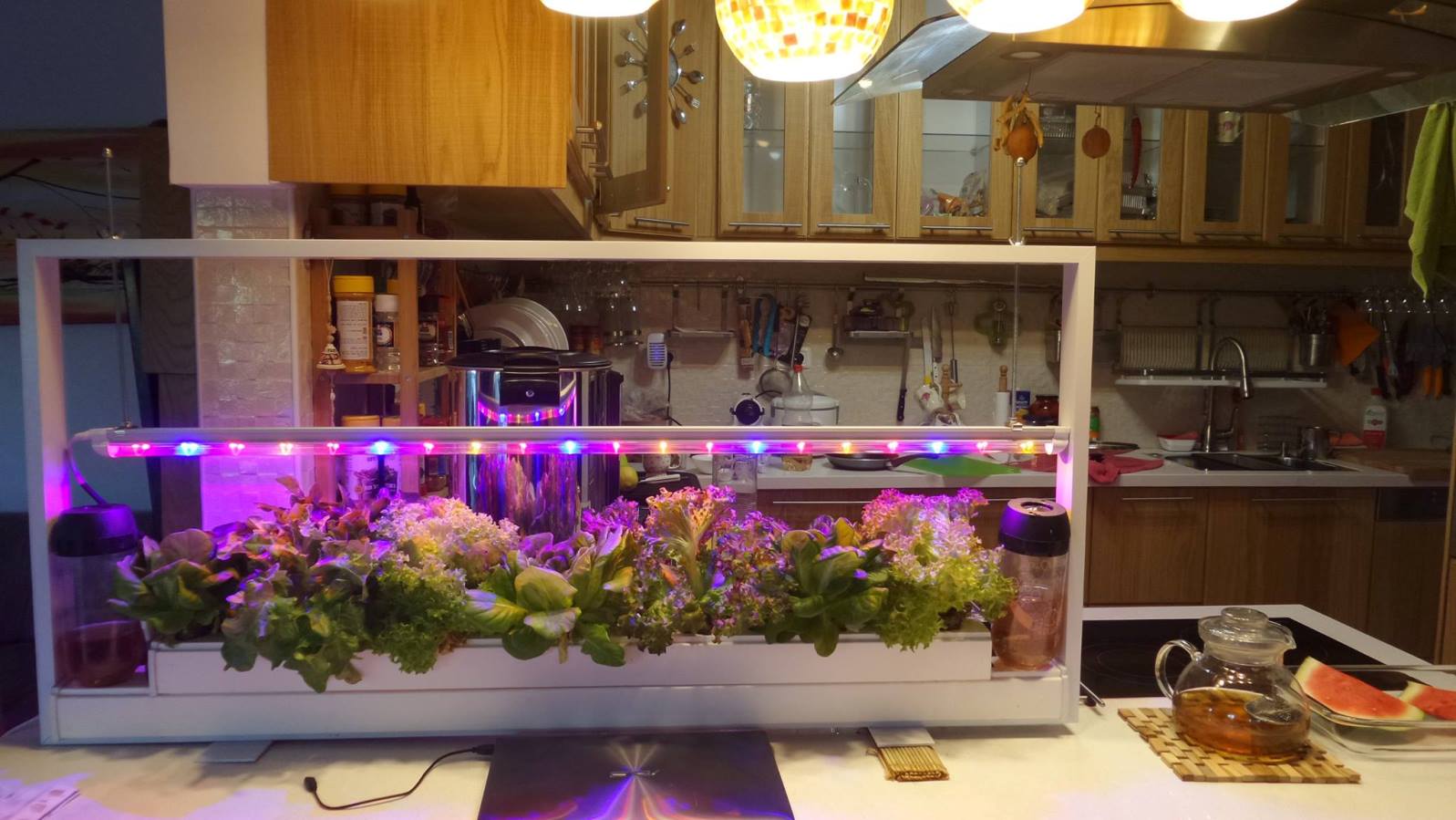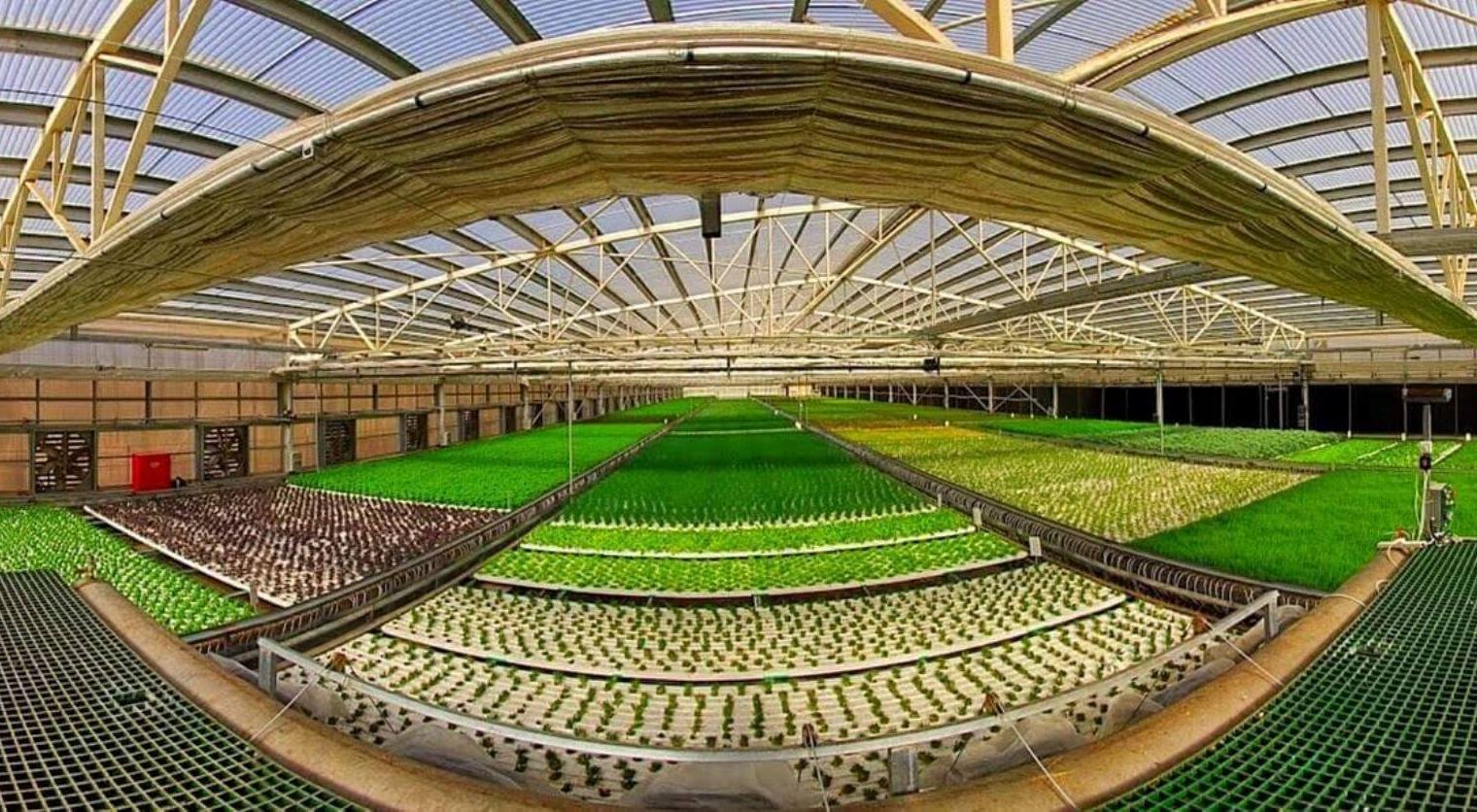On the rooftop of the Mishor Adumim industrial park in the desert between Jerusalem and the Dead Sea, an acre of herbs and lettuces provide employment for about 20 people representing the entire Israeli mosaic: Jews and Arabs, religious and secular, Israeli-born and immigrants.
“We all work together and value each other’s contribution,” says Bentsion Kabakov, a religious Russian immigrant who established the Aleinu Sustainable Aeroponic Greenhouse as a prototype six years ago.
“We are convinced that no matter how harsh the political challenges are, there is always a basis for mutual respect and coexistence. At Aleinu, that’s our guiding line.”
Women in hijabs chat easily with Ethiopian-Jewish women in the packing and labeling room. Everyone from pickers to technicians works in a comfortable, air-conditioned environment and goes home at a set time every day.
In all its social, business and environmental aspects, this is truly a farm of the future.
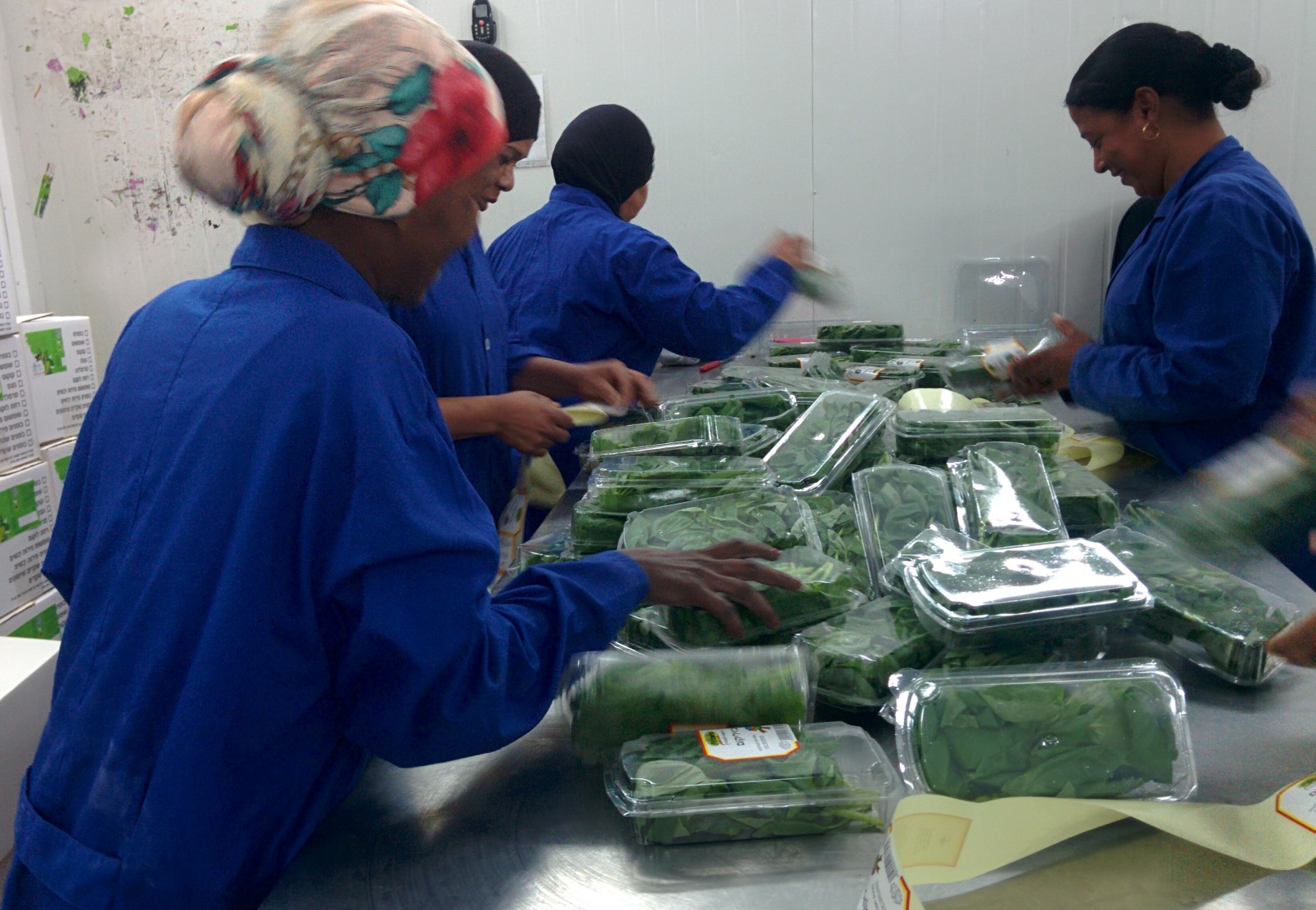
The word aleinu in Hebrew means both “above us” and “our leaves,” aptly conveying the concepts of rooftop farming and a shared sense of purpose.
Though rooftop and urban agriculture are becoming more widespread as the world’s population centers shift to cities, the system created by Kabakov and fellow engineers from the former Soviet Union is one of a kind, explains Shelley Brinn of Tour Adumim, who brings groups to see, smell and taste the produce of Aleinu and learn about its social, ecological and educational facets.
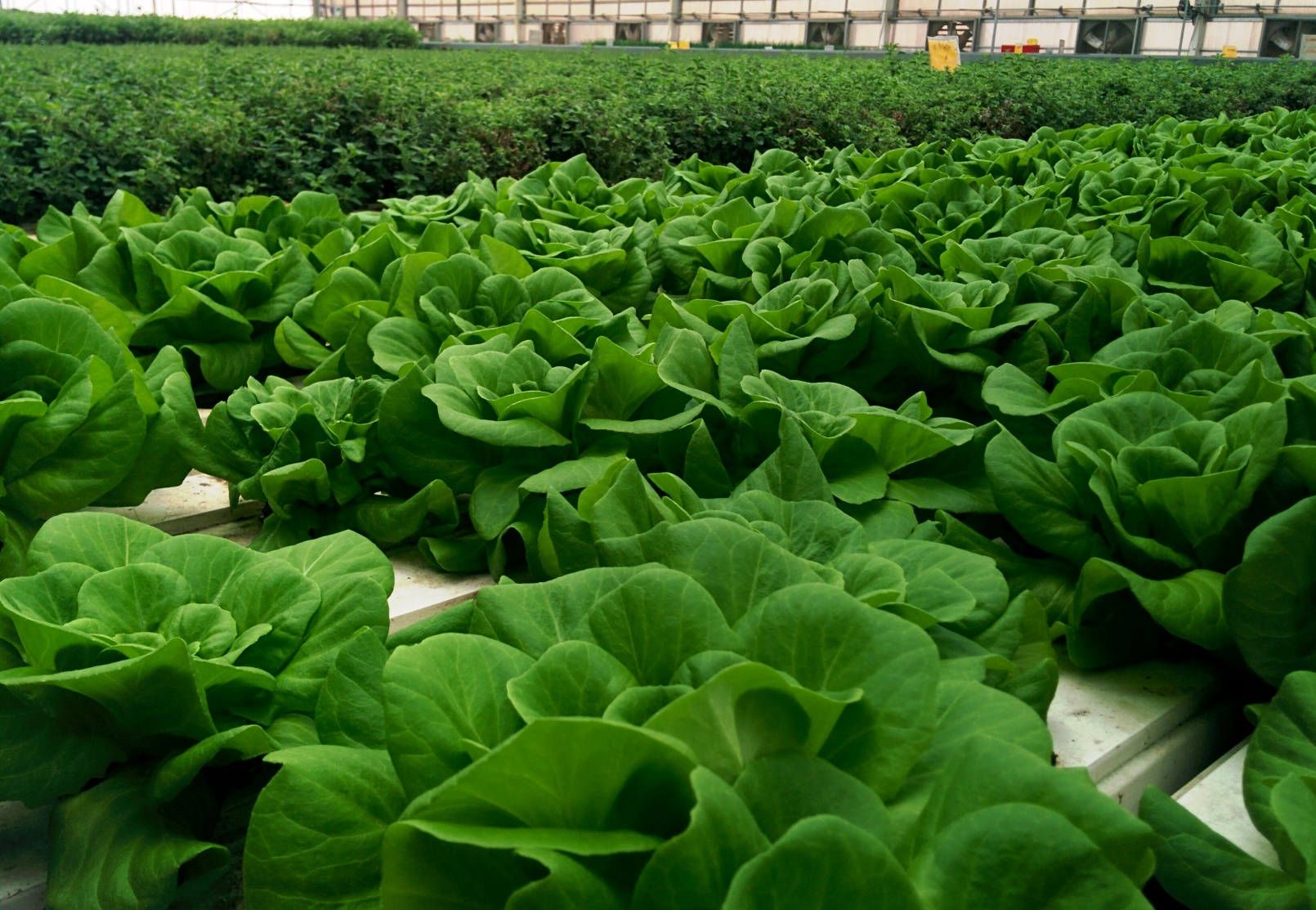
Based on the concept of aeroponics — growing plants in humid air rather than soil or water — Aleinu incorporates several proprietary technologies that bring an unprecedented level of automation and efficiency to the process while eliminating problems of conventional farming such as unpredictable weather, the expense of land and the need for long hours of outdoor toil by many workers.
As a result, this aeroponic greenhouse yields 50 times more produce per square meter than does a traditional farm, while consuming 20 times less water. Compared with other aeroponic greenhouses, Aleinu’s harvest is three times more abundant, according to Kabakov.
The 25 different greens and herbs — such as basil, lettuce, kale, arugula, parsley, chives, thyme, sage, mint and oregano – are certified insect-free and meet stringent international quality standards.
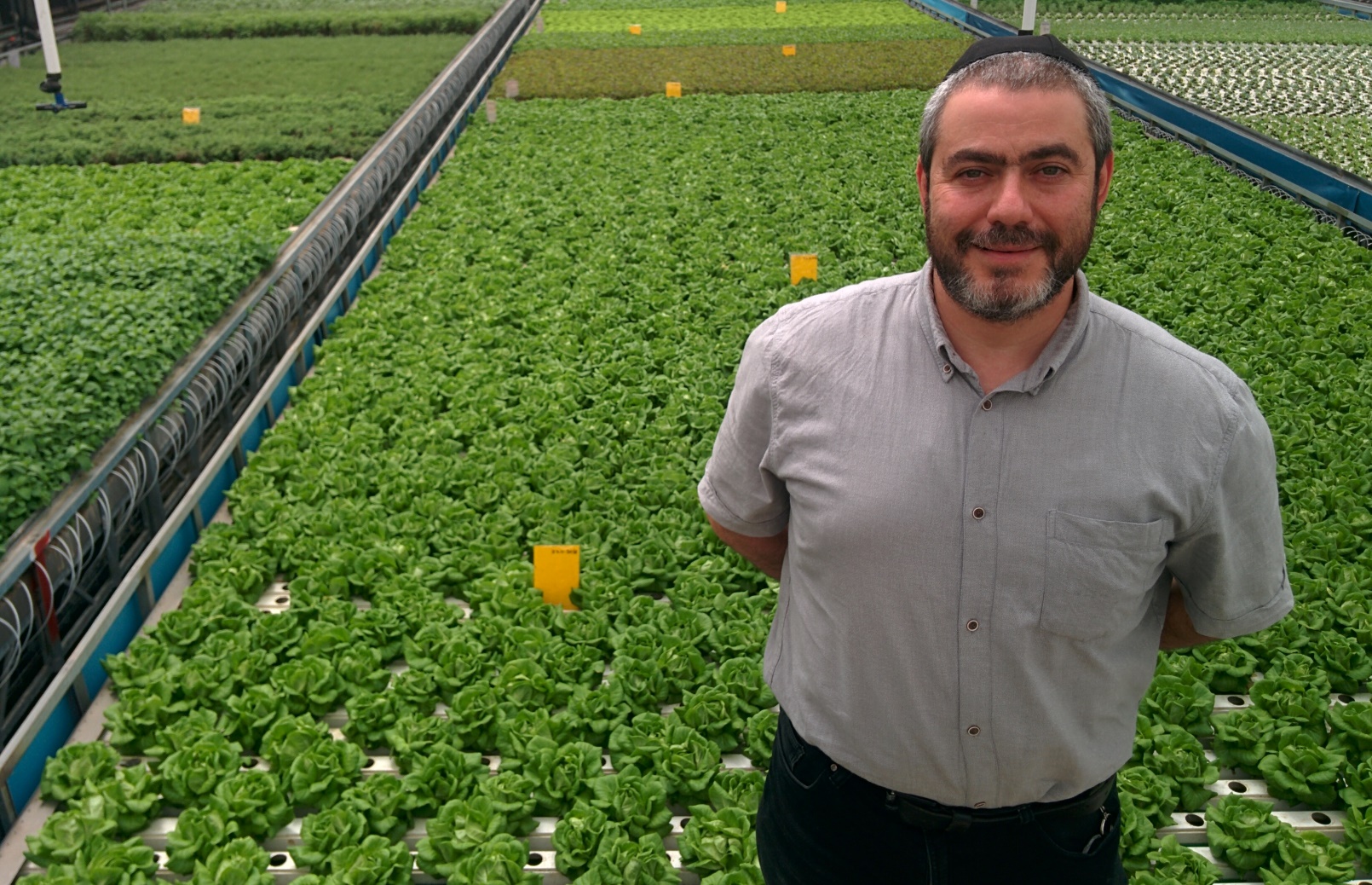
Seeds are sown one by one mechanically in blocks of sterile mineral wool (made from recycled industrial waste), which are placed in long plastic troughs (conduits) with holes.
Resting on a computer-controlled dynamic “field” of conveyor belts, the troughs are close together at first. As the plants grow, the distance between the troughs automatically adjusts as they move gradually from the planting end to the final harvesting end of the field.
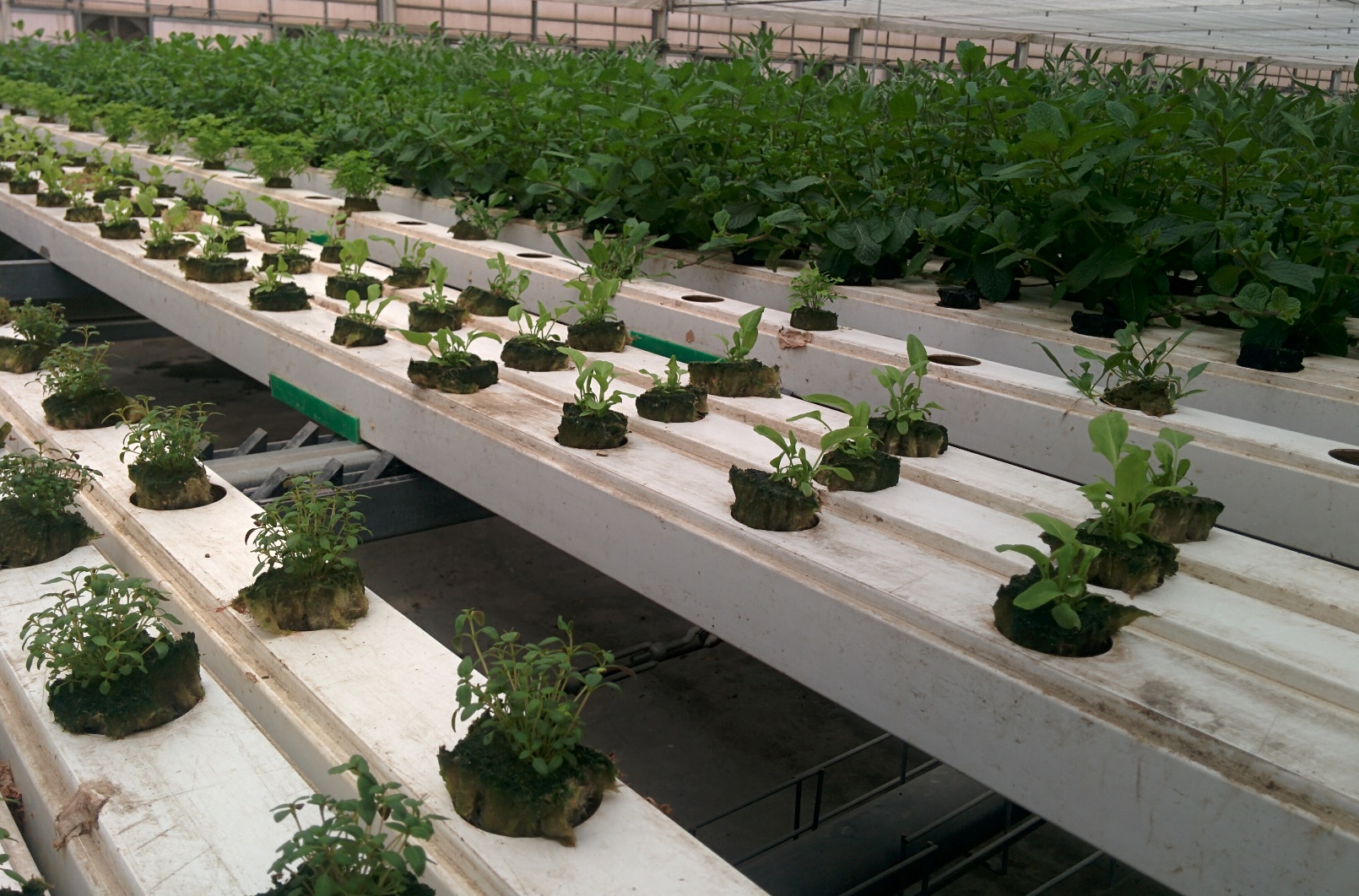
Misty air circulates inside of the troughs, providing the roots with water, nutrients and oxygen. Sensors in the field alert operators to any nutrient imbalances that can be corrected quickly by computer. A wet corrugated wall opposite a wall of fans keeps the entire space humid.
“In this controlled environment, the plants grow more quickly,” Brinn explains. “They have smaller roots because they get all the nutrition they need from above and can use their energy to grow upward.”
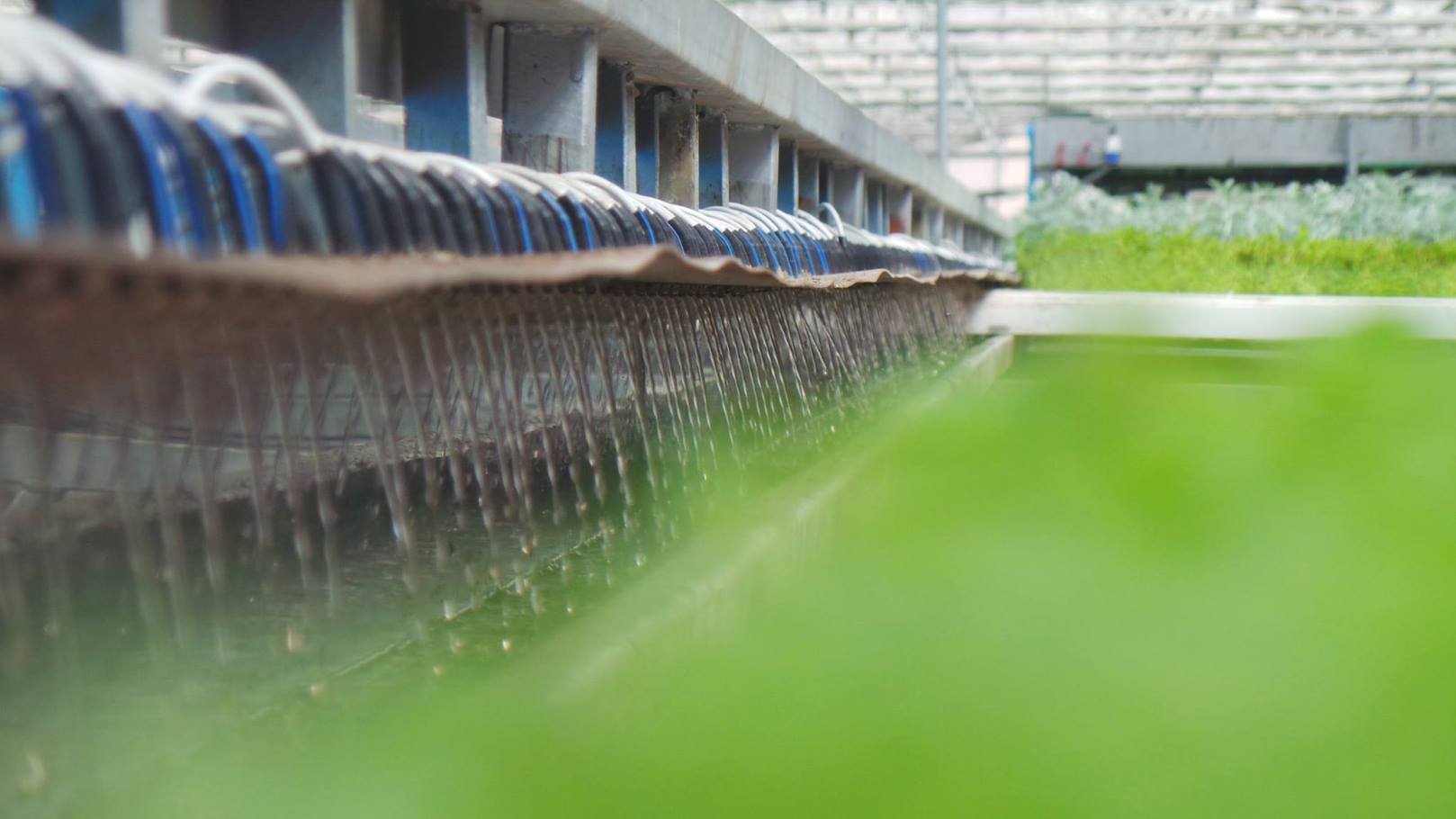
An overhead platform travels across the dynamic field, enabling just one or two workers — Brinn calls them “herbal cowboys” – to tend the troughs and crops as needed from above, so little floor space is wasted on walkways. Propellers mounted on the moving platform suck up bugs from the plants into huge nets.
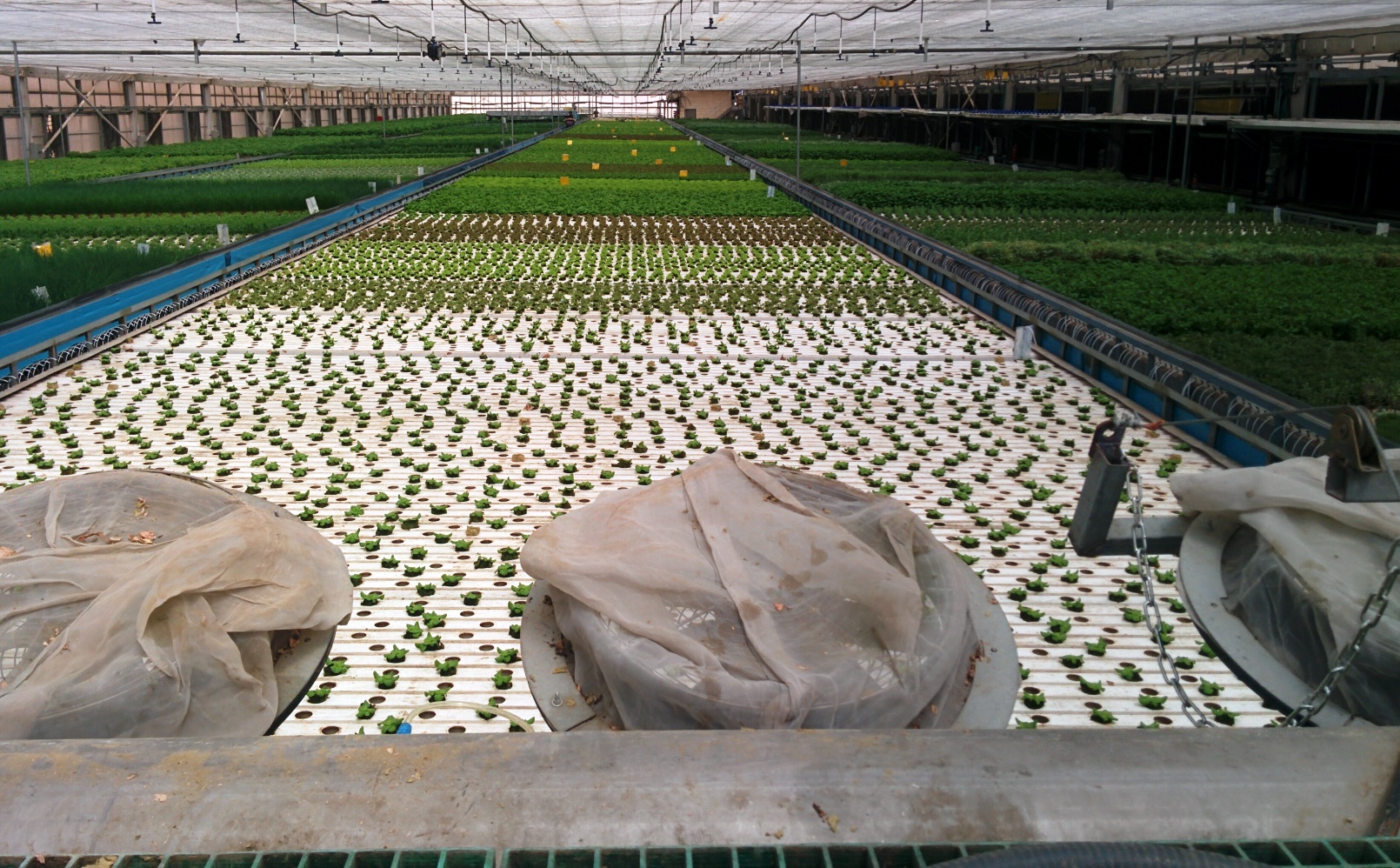
Far fewer insects are attracted to an industrial rooftop than to a conventional farm. Aleinu uses natural pesticides sparingly, mostly relying on a patented system of various physical obstacles to prevent insects from coming into contact with the plants.
For now, the model farm sells three million packages of produce per year in Israeli supermarket chains.
However, Kabakov hopes that once people become more familiar with the Aleinu brand and mission, he will be able to establish a direct-to-consumer sales network. Only by shortening the time from field to plate can the vitamins in veggies be preserved, he tells ISRAEL21c.
An applied mathematician whose grandfather was a farmer, Kabakov envisions satellite locations and mini home and school versions of his farm supplying Israeli households with fresh-picked, locally grown,virtually bug-free and chemical-free produce.
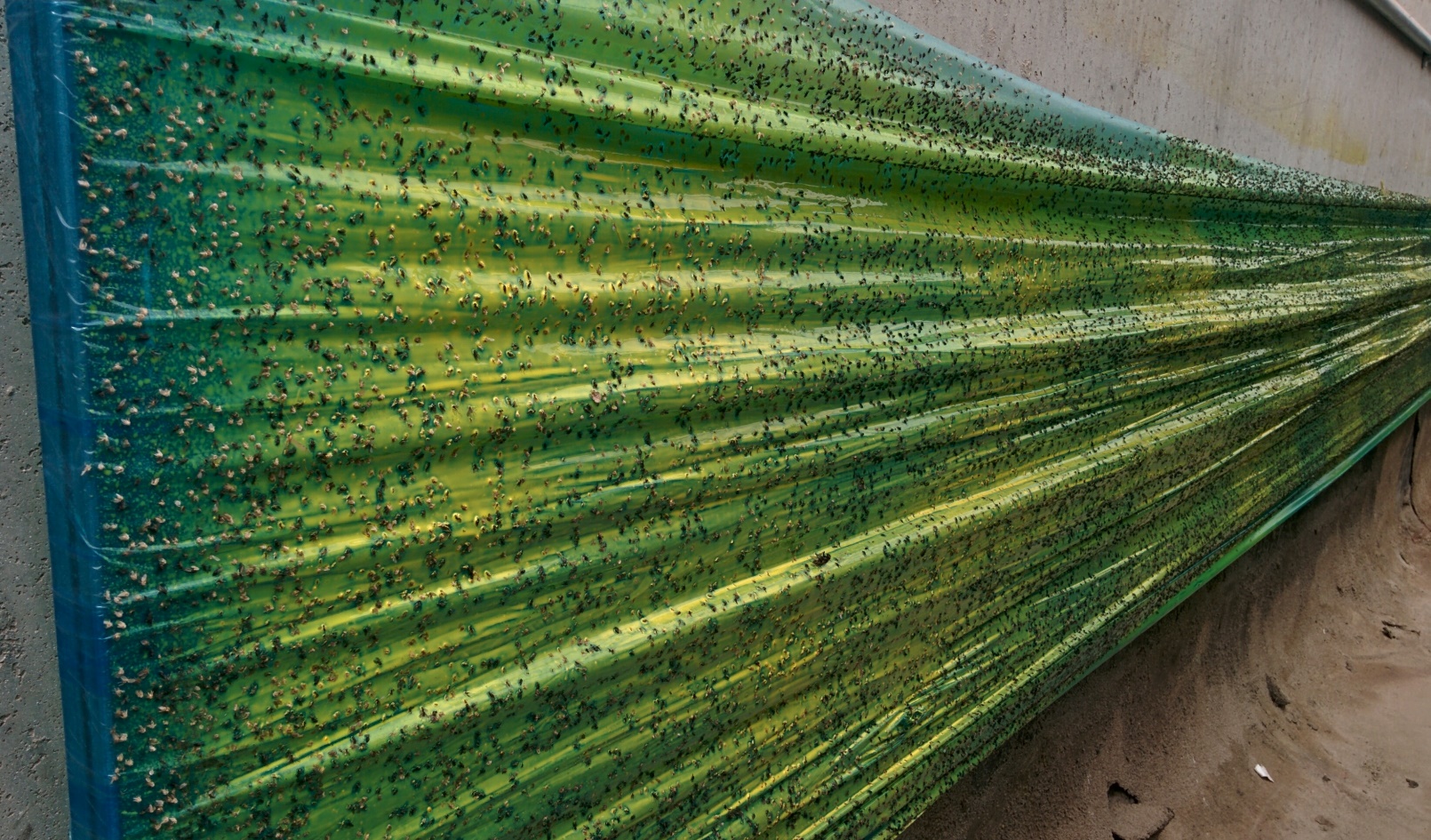
“Neighbors, families and friends can get together and turn rooftops, yards, balconies and even flights of stairs into sustainable urban mini-farms. Our technology and equipment are safe, user-friendly and easily accessible,” says Kabakov.
Aleinu offers workshops for professional farmers and others interested in starting aeroponic farms.
Kabakov welcomes inquiries from abroad and can provide tours in English, Hebrew, Russian or French. The day before ISRAEL21c visited, he hosted a delegation from China eager to learn more about his made-in-Israel technologies.
“We have four patents, and everything you see was made by our hands,” he says. “We continue to innovate new technologies in our R&D center.”
